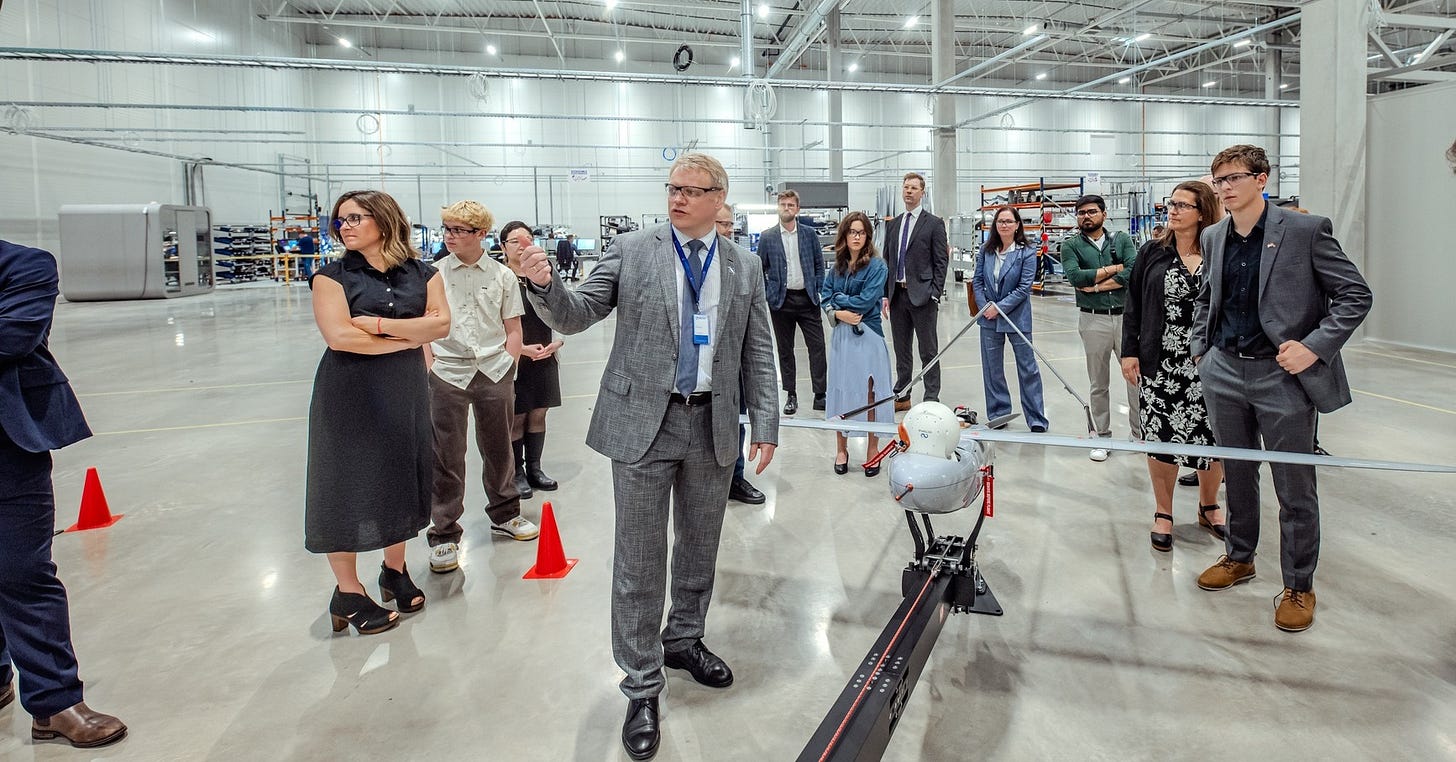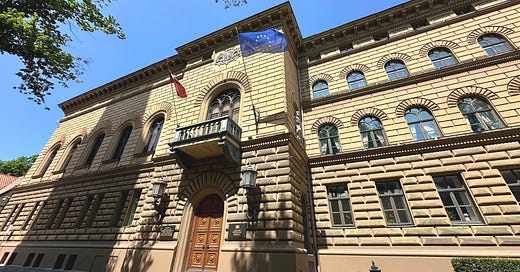
Dear Readers,
Let’s start with something out of this world: Researchers from Vilnius University, along with other colleagues, have discovered an exoplanet – a gas giant located far from the Galactic Center. Now, back to earth and a look at June in the Baltic states.
Foreign Affairs
NATO leaders gathered in The Hague for a summit largely geared toward US President Donald Trump. Allies agreed to raise spending to 5% of GDP by 2035 — 3.5% toward core defense needs and 1.5% for related investments, such as infrastructure and industry. Increased spending has been a Baltic priority, but the 10-year timeline is too long, say some officials. Contributions to Ukraine will count toward spending goals, though the country was somewhat sidelined compared to previous summits. Carnegie Europe asks if the increased spending will be enough to counter Russian aggression. Earlier, Russian Deputy Foreign Minister Sergey Ryabkov told state-run news agency TASS that the war in Ukraine would not end until NATO pulls out of the Baltic countries.
Prior to the summit, leaders from the Bucharest Nine, Nordic countries, and Ukraine gathered to address regional security concerns in Vilnius. NATO Secretary General Mark Rutte conveyed the importance of increased defense spending: “In the end, if the Russians win, you will still have all your wealth, but you’ll have to speak Russian. Nobody wants that.”
NATO Secretary General Mark Rutte conveyed the importance of increased defense spending: “In the end, if the Russians win, you will still have all your wealth, but you’ll have to speak Russian. Nobody wants that.”
Latvia was elected as a non-permanent member of the UN Security Council in June. Kaspars Ģermanis looks at the country’s transition in the organization from aid recipient to contributor.
Estonian Foreign Minister Margus Tsahkna met with Varsen Aghabekian, the Palestinian National Authority's minister for foreign affairs and expatriates. Tsahkna criticized Israel’s obstruction of humanitarian aid to Gaza and reaffirmed support for a two-state solution. Lithuania moved to evacuate Baltic citizens following Israel’s attacks on Iran, but a political analyst critical of the airline’s owner was removed from an evacuation flight.
Serhey Tsikhanouski, Belarusian political activist and husband of opposition leader Sviatlana Tsikhanouskaya, arrived in Vilnius after being freed from Belarus. Thirteen other political prisoners were also released, including two Latvians and an Estonian. For the Atlantic Council, Hanna Liubakova writes that the pardons were a “calculated move by Lukashenka,” who is eager to engage with the US. More than 1,100 political prisoners remain incarcerated in Belarus.
Defense & Security
AI-powered drones — like those used in Ukraine’s June 1 attack on a Russian aircraft base — are reshaping modern warfare and military preparedness in the Baltics. Vilnius College is launching Lithuania’s first academic program in drone engineering. The government has also eased military drone procurement rules. Latvia’s Ministry of Defense and Riga Technical University hosted a Drone Summit, and US-based Edge Autonomy opened a drone production facility in Riga. Estonia’s €20 million "drone wall" along its eastern border will focus on peacetime issues, like smuggling, but has made use of expertise from Ukraine.

Lithuania's Education Ministry has advised schools to warn students about the risks of being recruited by Russian intelligence services. Re:Baltica reports on how Moscow is using Telegram to target Baltic Russians. And, Russian speakers in Latvia are less willing to answer questions about the war in Ukraine, indicating heightened levels of self-censorship, researchers say.
Finland and Estonia issued a navigation warning for the Gulf of Finland over disruptions in Global Navigation Satellite Systems. Lithuanian Armed Forces report that GPS signal jamming has increased sevenfold around the Russian enclave of Kaliningrad. A Russian aircraft breached Estonian airspace for the second time this year.
Estonia, Latvia, and Lithuania signed a memorandum focused on cross-border evacuation planning in the event of a regional emergency.
Following decisions in Latvia and Lithuania, Estonia’s parliament voted to withdraw from the Ottawa Convention banning anti-personnel landmines.
For the Baltic Initiative, Māris Andžāns reflects on the two years since Latvia reinstated national defense conscription.
Domestic Affairs
Latvia held municipal elections on June 7. In Riga, oligarch Ainārs Šlesers’ Latvia First party won a plurality, but was shut out of the coalition, led by incoming Mayor Viesturs Kleinbergs (Progressives). Šlesers unsuccessfully disputed the results in Rīga, as did the Latvian Russian Union in Liepāja. Turnout increased to 47%; however, issues with vote counting led to delays and confusion, prompting resignations and inquiries into the system.
Estonia plans to lease space at Tartu Prison to Sweden, accepting up to 600 low-risk inmates with the aim of addressing overcrowding in Swedish prisons while utilizing Estonia’s underused facilities. The initiative is expected to generate at least €30 million in revenue and create around 250 new jobs. But Estonian staff will require linguistic and cultural training, and security agencies warn of potential risks, including extremism and organized crime.
The Stockholm School of Economics in Riga released its annual "Shadow Economy Index for the Baltic Countries." The report details a decline in the size of the shadow economy in Latvia and Lithuania, with an increase in Estonia. Also, scammers have extracted more than €4.28 million from customers at Latvia’s four largest banks between January and May, 49.2% less than in the same period in 2024.
Heavy rains have threatened crop yields in the region, from potatoes and hemp to barley and rye.
Harju District Court sentenced Estonian journalist Svetlana Burceva to six years in prison for violating international sanctions and committing treason as a result of her work for the Russian state media outlet RIA Rossiya Segodnya.
Vilnius hosted the annual Baltic Pride, with around 20,000 attendees. Pride parades took place in Riga and Tallinn as well.
Aitäh, paldies and ačiū,
Indra Ekmanis
Baltic Bulletin Editor
In Case You Missed It
Latvia’s Renewed Conscription Turns Two - Māris Andžāns





